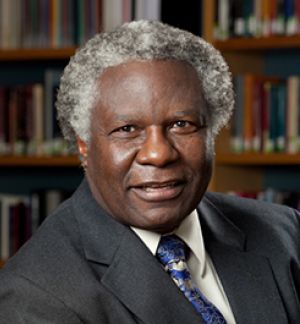The exodus of skilled people from Africa is often blamed for the poor performance of African economies. It is estimated that up to 1.8 million Africans live in the diaspora. According to a recent World Bank study, "although skilled workers account for just four per cent of the Sub-Saharan labour force, they account for 40 per cent of its migrants."
The usual response is to seek to curb the flow of skilled people to other countries. This approach misses the point. The real policy challenge for Africa is learning to tap the expertise of those in diaspora for national and regional development.
So far much of the attention among developing countries has focused on benefiting from remittances. The global flow of remittances to developing countries now stands at $150 billion, exceeding foreign aid and becoming the main source of foreign earning for a number of countries.
But the focus on remittances is misguided. We are no longer in the traditional labour economy in which one's value is determined by wage earning. This is a carry-over from olden days when a lad fleeing the village was a real loss of labor power. Today we are in a knowledge economy governed by connectivity, mobility and interdependence.
The most notable case is the Taiwanese diaspora, which played a crucial role in developing the country’s electronics industry. This was a genuine partnership involving the mobility of skills and capital. Countries such as India are now understudying this model.
A number of countries have adopted policy measures aimed at attracting expatriates to participate in the economies of their countries of origin. They are relying on the forces of globalisation such as connectivity, mobility, and interdependence to promote the use of diaspora a source of input into national technological and business programs. These measures include investment conferences, the creation of rosters of experts, and direct appeals by national leaders.
Efforts to encourage expatriates to return home often occur after countries emerge from periods of civil unrest or economic decline. Like other professionals, expatriates respond to incentives and a sense of purpose.
Policy measures
The most important starting point is, therefore, to establish a clear mission around which the diaspora can rally. The onus is on developing country governments to design programs and offer incentives that enable expatriates to contribute to national efforts.
Significant experiments are underway around the world to make effective use of their diaspora. The Swiss government has converted part of its consulate in Cambridge (Massachusetts, US) into a focal point for interactions between Swiss experts in the US and their counterparts at home.
The Swiss House was created in recognition of the importance of the area as the world’s leading knowledge centre, especially in the life sciences. In addition to Harvard University and Massachusetts Institute of Technology (MIT), the Boston area is home to more than 50 colleges and universities and a cluster of biotechnology activities.
In another innovative example, the National University of Singapore has established a college at the University of Pennsylvania to focus on biotechnology and entrepreneurship. The complementary Singapore-Philadelphia Innovators’ Network (SPIN) serves as a channel and link for entrepreneurs, investors, and advisors in the Greater Philadelphia region and Singapore.
SPIN seeks to create opportunities for collaboration and partnerships in the area.
India is introducing a number of policy measures — including granting dual citizenship to Indians in countries of strategic interest — aimed at strengthening the role of diaspora in national development.
This is a major change of policy, based on the study of how countries such as Taiwan have benefited from their diaspora. These approaches can be adopted by other developing countries, where the need to forge international technology partnerships may be even higher.
But there are also missed opportunities. Guyana has an estimated population of about 700,000 at home. But nearly 210,000 people of Guyanese origin live in the US, of whom about 65 per cent are in New York.
About 44 per cent of the Guyanese immigrants are US citizens, forming a strong bond between the two countries.
Guyanese immigrants in the US contribute significantly to the economy through remittances amounting to $150 million a year. But their impact could be greater if the focus included greater knowledge flows and technological cooperation.
The Dominican Republic, on the other hand, is actively designing a programme that would help the country benefit from its nationals living in the US.
These examples illustrate that need to complement concern over "brain drain" with new approaches that make effective use of the opportunities provided by the existence of large pools of expertise of expertise in diaspora.
Such efforts will require countries to look at globalisation in a new light and identify the opportunities that it offers to developing countries.
The old-fashioned metaphor of "brain drain" should to be replaced by a new view of "global knowledge flows".
The writer is a professor of the practice of international development at Harvard University
Juma, Calestous. “We Can Do More Than Just Whine over Expatriates.” The Standard, December 9, 2005





